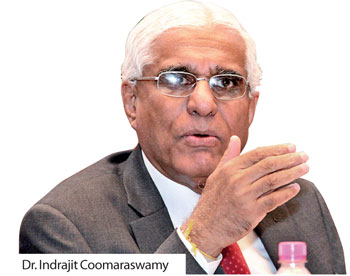Reply To:
Name - Reply Comment
The International Monetary Fund (IMF), which held back the second tranche of the US $ 1.5 billion bailout package last year until the value-added tax (VAT) was raised from 11 percent to 15 percent, is now delaying the release of the third tranche until the government tables the new Inland Revenue Bill in parliament. 
The third tranche of the three-year Extended Fund Facility (EFF) was due this April but has been delayed by the IMF as the government failed to fast track the bill, which was said to have been designed with the expertise of the IMF but with little or no consultation with the public, the
stakeholders allege.
The disbursement of the EFF occurs in seven tranches followed by programme reviews and there are ‘prior actions’ the government must fulfil in order to ensure timely and smooth continuation of the programme until the completion of the three years.
Tabling of the new Inland Revenue Bill in parliament is one such prior action, which the government has so far failed
to deliver.
“There is only one prior action that has to be completed. That is the tabling of the Inland Revenue Bill in parliament,” Central Bank Governor Dr. Indrajit Coomaraswamy said. Addressing the media after releasing the June monetary policy review last Friday, Dr. Coomaraswamy said the bill had already been gazetted on June 19 and is expected to be tabled in parliament in about 10 days.
He however said the IMF only wants the bill to be tabled in parliament as the multilateral lender respects the parliamentary procedure in legalizing a bill in a sovereign state.
Some senior Finance Ministry officials have alleged that the government is rushing the bill with no consultations whatsoever and some senior Inland Revenue Department officials have complained that they have been kept completely in the dark with regards to the drafting of the bill.
Meanwhile, the tax experts who have seen the draft bill have reportedly said that the new tax legislation is nothing but only a carbon copy of Ghana’s new tax law prescribed by the IMF some years back. The IMF advocates for higher state revenues and has repeatedly cited Sri Lanka’s extremely low revenue to gross domestic product as a key macroeconomic shortcoming.
The expectation is that with the new Inland Revenue Bill, the government’s tax income will get a significant boost, thereby allowing it to phase out the indirect tax burden placed on the public over a period of time. Sri Lanka’s current tax revenue mix (indirect and direct taxes) stands at 80:20. The proponents of the new tax law argue that it reduces the discretion of the finance minister to make ad hoc decisions on tax by transferring that power to parliament.
“The IMF Executive Board is expected to meet during the second week of July and our expectation now is that, that (third tranche) should be approved (and) the review will go through and the next tranche (fourth tranche) would be forthcoming,” Dr. Coomaraswamy said.